In 2021 Tanzania got her first female president, Her Excellence Samia Hassan Suluhu, who came into power after the passing of our beloved President John Pombe Magufuli. The strong constitutional foundation of Tanzania has paved way for such historical events. As we are celebrating 60 years of Independence of Tanzania’s mainland (formerly known as Tanganyika before its union with Zanzibar in 1964), the remarkable people who participated fully in the struggles for independence are many and sadly unsung, but should always be celebrated. Titi Mohamed Salum Mandangwa is one such hero, famously known as Bibi Titi Mohamed (‘Bibi’ is an appellation and a term of endearment often given to grandmothers or older respected woman). Born in the year 1926 into a Muslim family, when she reached the age of 13, she was married off. Because of her charming personality that stood out at a young age and her beautiful voice, she would sing in various celebrations.
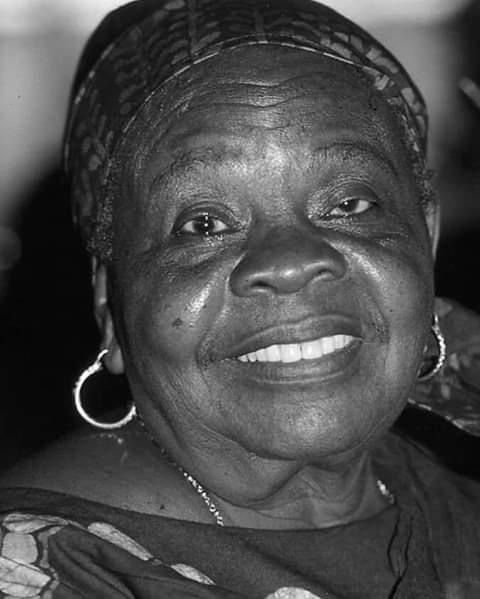
Her first involvement with politics was when she and her husband: Boi Ramadhan, first met a man with the name Shneidder Plantan; one of the leaders of the Tanganyika African Association (TAA) which in the year 1954, was renamed Tanganyika African National Union (TANU), and new members were to be recruited. In Plantan’s door to door visits, he met and registered Bibi Titi and Boi Ramadhan in TANU, giving them identity cards and numbers. Bibi soon claimed leadership in TANU’s women wing in the year 1955. It is said that Bibi Titi registered 5000 women within three months by herself because of her influence, hard work and zeal to see Tanganyika liberated from colonial rule.
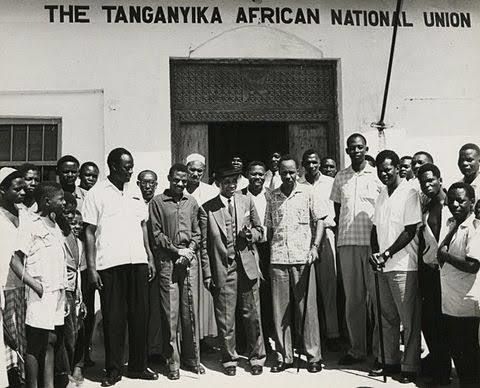
The first leaders of TANU at their office; Dar es Salaam
In the year 1957 during the independence struggles, she was given the chance to give a speech before the mass in the political rally that involved a guest from the Labor party of England. During the time, women were not given a chance to speak about politics. The patriarchal society deemed them as ‘helpers who belonged in the kitchen’. When she stood up, she boldly called upon all women to cooperate with men in the independence struggles. She argued that all men -despite being fearful and bold- were breastfed and raised by women, henceforth women are as well important.
Bibi Titi Mohamed used her talent and inspired many to unite in the fight. She sang famous songs by then like “Hongera mwanangu eeh na mi nihongere eeh hongera” which is still being sung in marriage ceremonies and “Mama Usungu, Mama Usungu”. The women joined hands with men because of the inspiration they got from her. Every time before Mwalimu Julius Nyerere’s speech, she would sing to motivate people to listen- we can say that behind Nyerere’s success was Bibi Titi with her passionate voice. Her voice soon became admired by many; Tom Mboya and Jaramogi Oginga Odinga who were prominent independence struggle leaders in Kenya, and among the founding leaders of the Kenya African National Union (KANU). They requested Bibi Titi’s participation in the independence political conventions in Kenya. She took part in the political rallies in Mombasa, Kisumu, Machakos and Nairobi. Her message was directed towards the colonizers (British Government) to set free Mzee Jomo Kenyatta; who was among the first leaders of KANU and later became the president of Kenya, but he was jailed for treason. Her voice in Kenya had rippling effects and led men and women to again join forces in the fight for their independence.
When Jomo Kenyatta was released in later years, he came to Tanzania to speak before the Tanzanians in Jangwani, Dar es Salaam. He thanked Bibi Titi and Tanzanians for their support. It was during this rally when Julius Nyerere said that he was ready to delay Tanzanian’s independence so to wait for Kenya to gain theirs in hopes that then the two countries would unite.
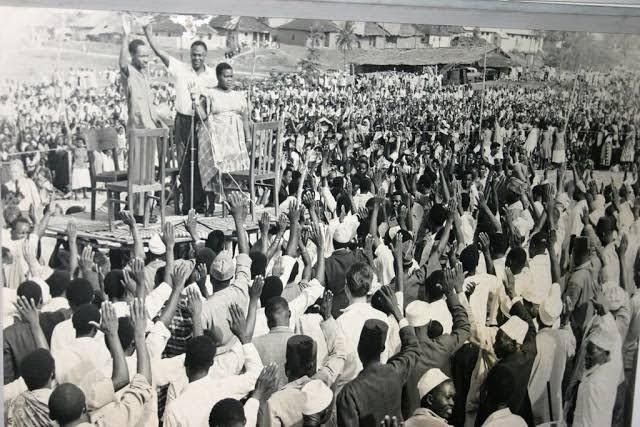
The political rally in 1955 at Jangwani, Dar es Salaam during independence struggles whereby Bibi Titi was hand to hand with Nyerere before he went to UNO to ask for independence.
After independence, Bibi Titi became a Member of Parliament representing Rufiji and a deputy Minister in the Ministry of Traditions and Development. She was also the first Chairperson of the Women Association in Tanzania, among the first leaders of the East African Muslim Welfare Society and a member of the committee that was preparing Maulid Day yearly.
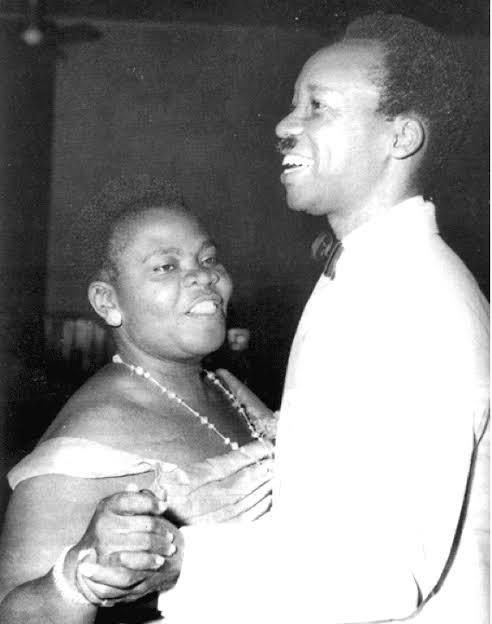
Bibi Titi Mohamed dancing with Mwl. Nyerere during independence
Nonetheless, she did not succeed well in politics as she was charged with treason (allegedly for opposing Mwalimu Nyerere’s Arusha Declaration), sent to jail and later on granted release through a plea request given to Mwalimu Nyerere by a famous woman politician in Kenya in the year 1972. Her history was rewritten during the time of President Ali Hassan Mwinyi; the second president of Tanzania who succeeded President Nyerere. A street and a road in Dar es Salaam were renamed after her. She was taken care of by the government until her death in November of 2000 at Net Care hospital in Johannesburg, South Africa. We can conclusively say that she was among the key people in the Independence struggles in Tanzania.
The Independence in Perspective The independence of Tanzania’s Mainland was obtained 60 years ago. When I was growing up, I used to ask my grandmother on how life was before and after independence. She would vividly explain the big difference between being colonized and being independent. When you are colonized, your identity will match and reflect that of your colonizer. When independent, you would enjoy freedom and be able to have your own culture, identity and write your own history.
During the struggles for independence, Mwalimu Julius Kambarage Nyerere was the key mover of the independence due to his educational background. He left his work as a civil servant (a teacher) at Pugu Secondary school and went into politics so he could concentrate to bring independence in Tanganyika (there was a law that hindered civil servants from participating in
politics). He cooperated with other people such as Kleist Sykes, Paul Bomani, Oscar Kambona, Rashidi Mfaume Kawawa to bring independence to Tanzania through TANU. Independence was officially obtained on the 9th of December 1961 when the Governor of Tanganyika, Sir Richard Turnbull, and the Prime Minister of Tanganyika by then Julius Kambarage Nyerere walked in the center of the Uhuru fields on the 8th of December 1961; the lights were dimmed, the Union Jack lowered down while the bands played the anthem “God save the Queen’. When it ended, around midnight on the 9th of December 1961, the lights brightly came back on, the new flag of Tanganyika was raised in its mast, the crowd cheered and others cried
joyfully as they sang a new song, “Mungu ibariki Africa”, meaning God bless Africa. This went in tandem with another event on top of Mount Kilimanjaro, where Brigadier Alex Nyirenda was putting the flag of Tanganyika and the independence torch. The torch on Mount Kilimanjaro symbolizes hope, love, and dignity as described by Mwl. Julius Nyerere in one of the Legislative councils held on the 22nd of October 1959 as quoted here “We, the people of Tanganyika, would
like to light a candle and put it on top of Mount Kilimanjaro, to shine beyond our borders giving
hope where there was despair, love where there was hate and dignity where before there was only humiliations”.
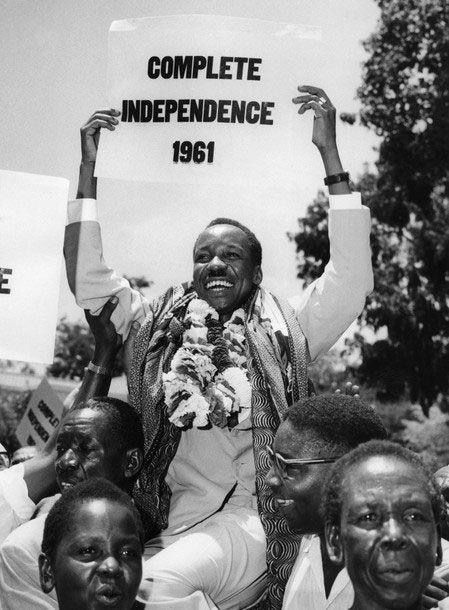
Mwl. Julius Nyerere after his return from UNO being received by members of TANU
After independence, Tanganyika became the 104th member of the United Nations, and later on a member of Commonwealth.
For the last sixty years of independence, Tanzania has grown in many arenas and this is vividly seen in areas of development. Even though we have not reached where we want, our path is shining under the leadership of our President Mama Samia Suluhu Hassan. Within a very short time, she has lifted a ban placed on young pregnant school girls, previously preventing them from returning to school. Not only that, she is now building dispensaries and schools all over Tanzania through mobile levy, accelerating technology proficiency and education in the country as a whole. Within the remaining four years of her leadership, we expect a lot from her. She has become an inspiration to girls in the matters of leadership in our country as well as other African countries.
Happy Independence Day to Tanzania, may we all live long in its blessings.
